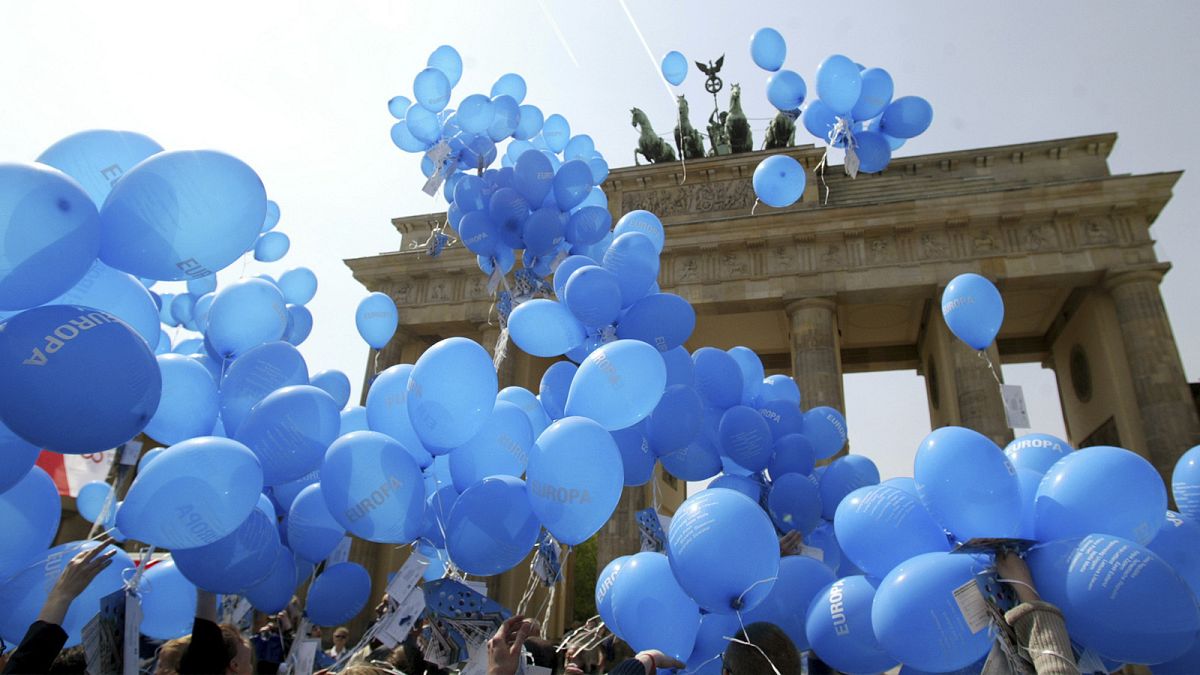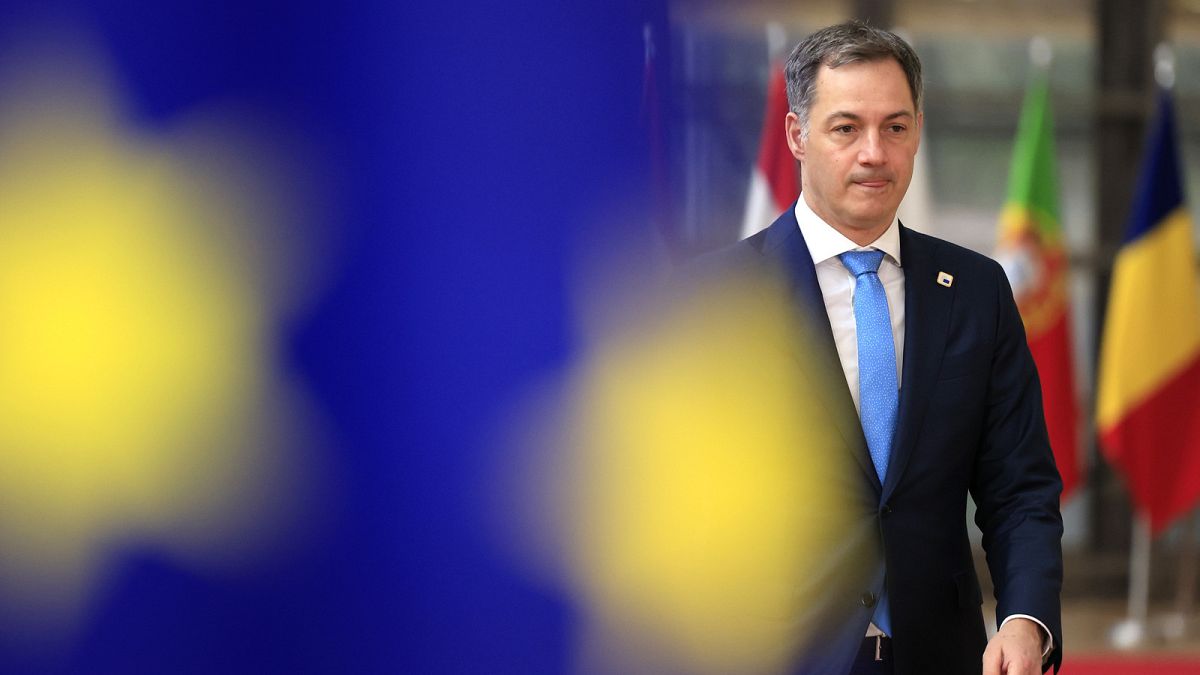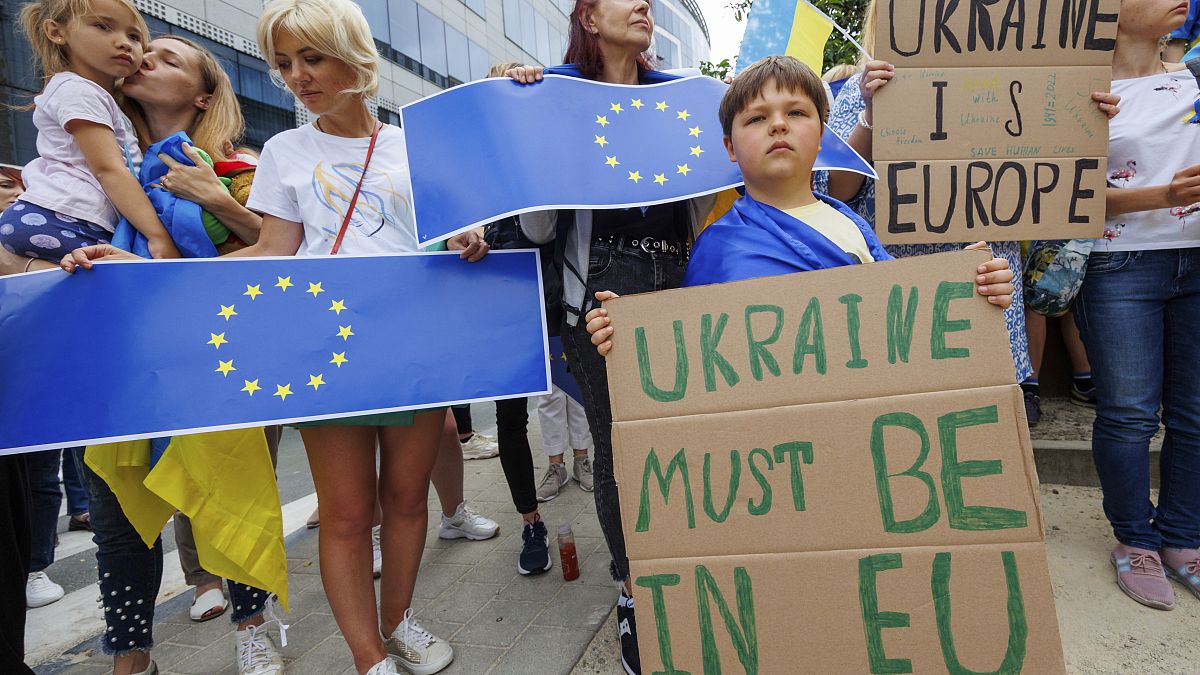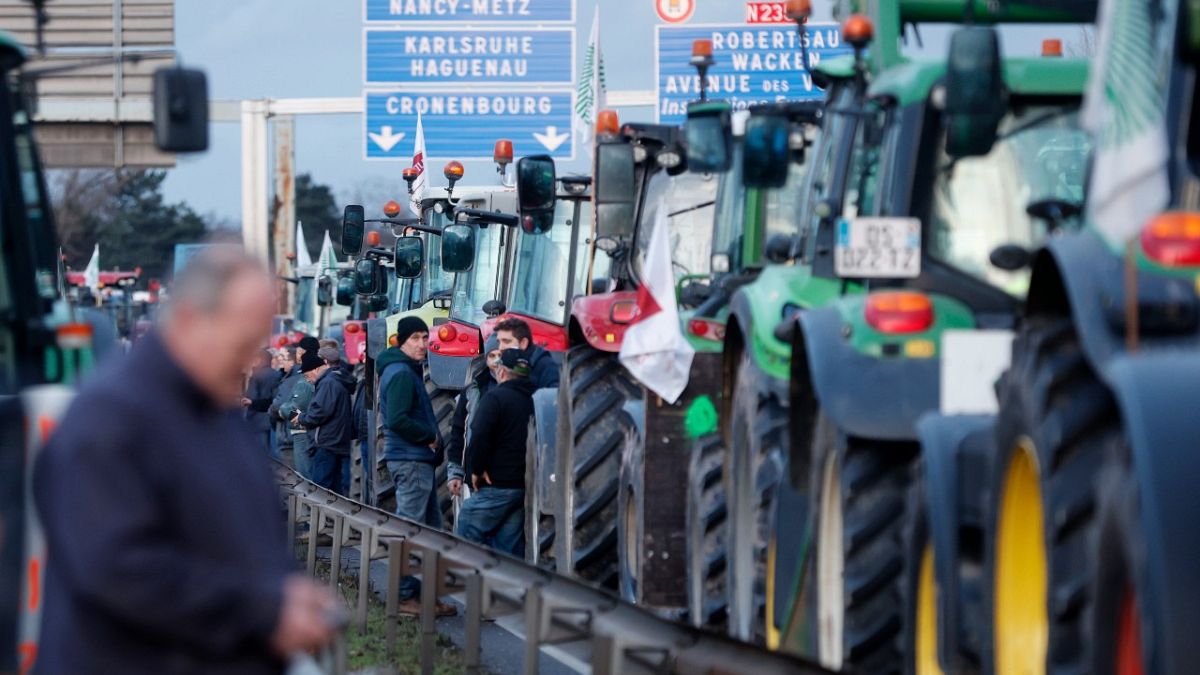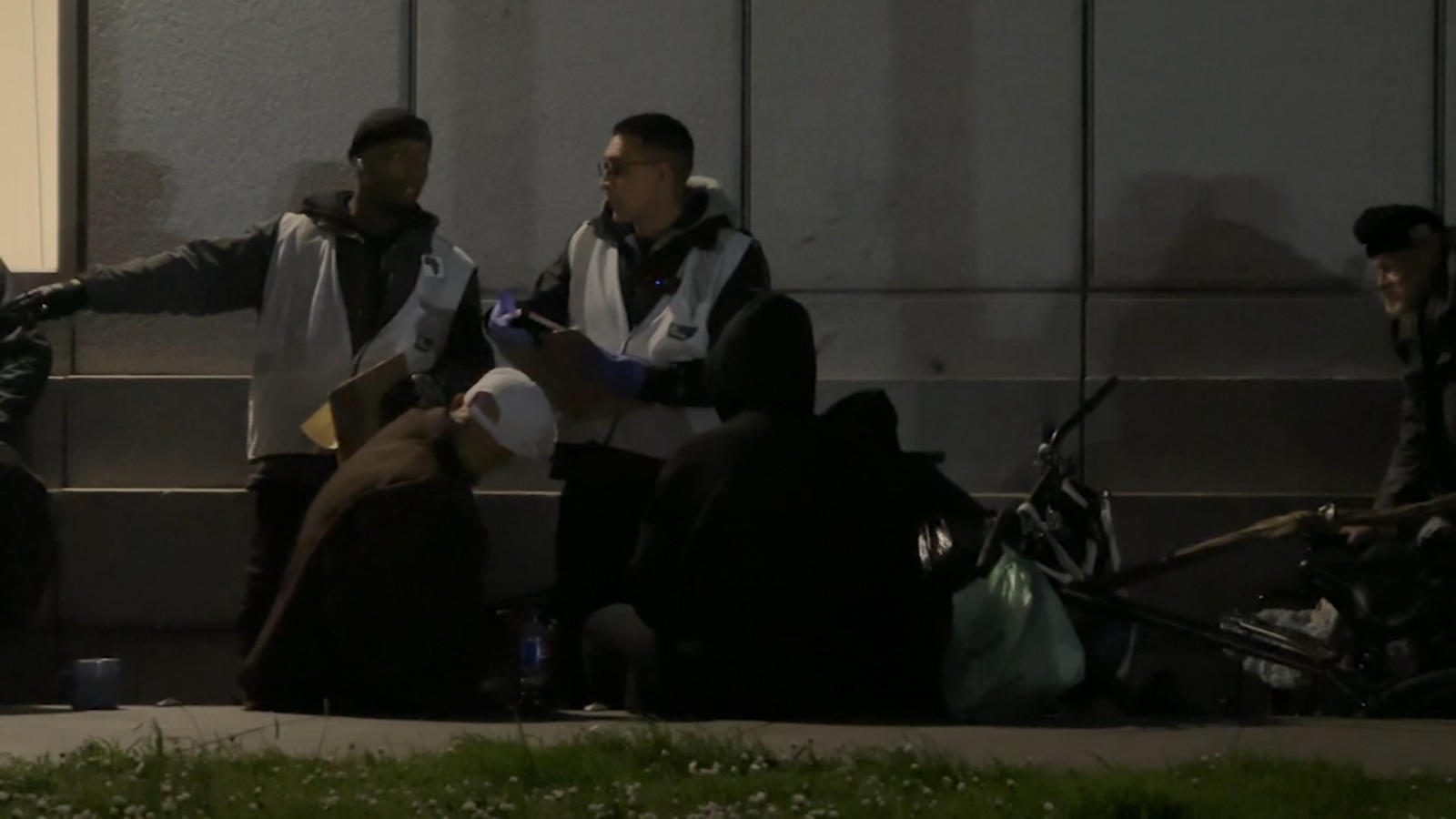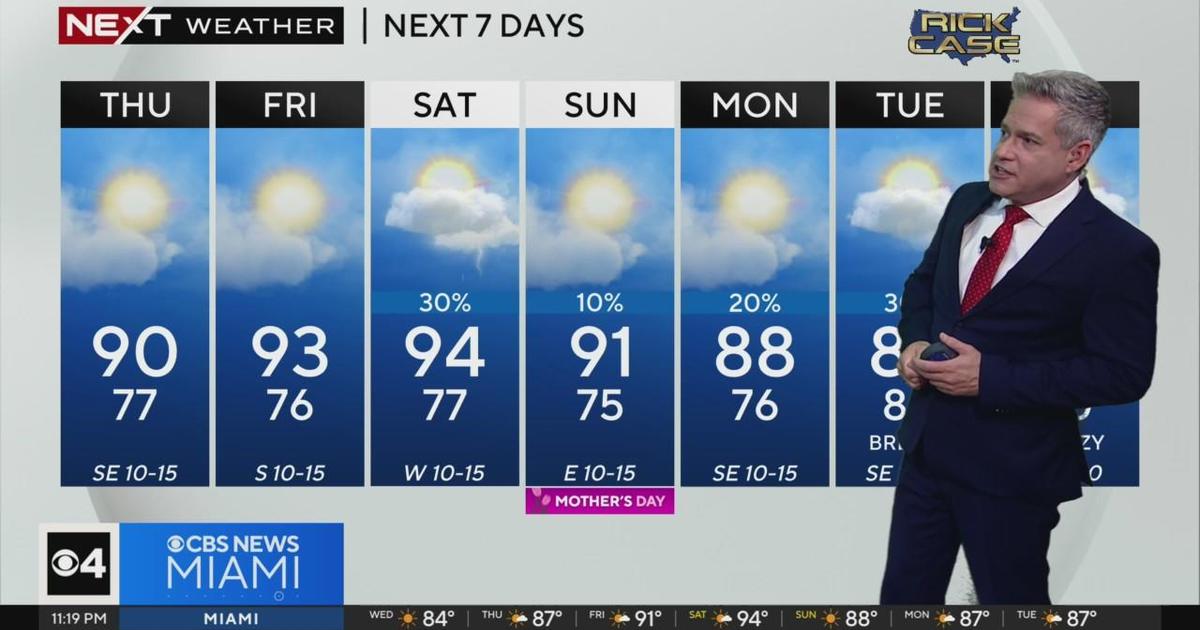World
Russia ‘hijacking’ frustration with EU accession – North Macedonia FM
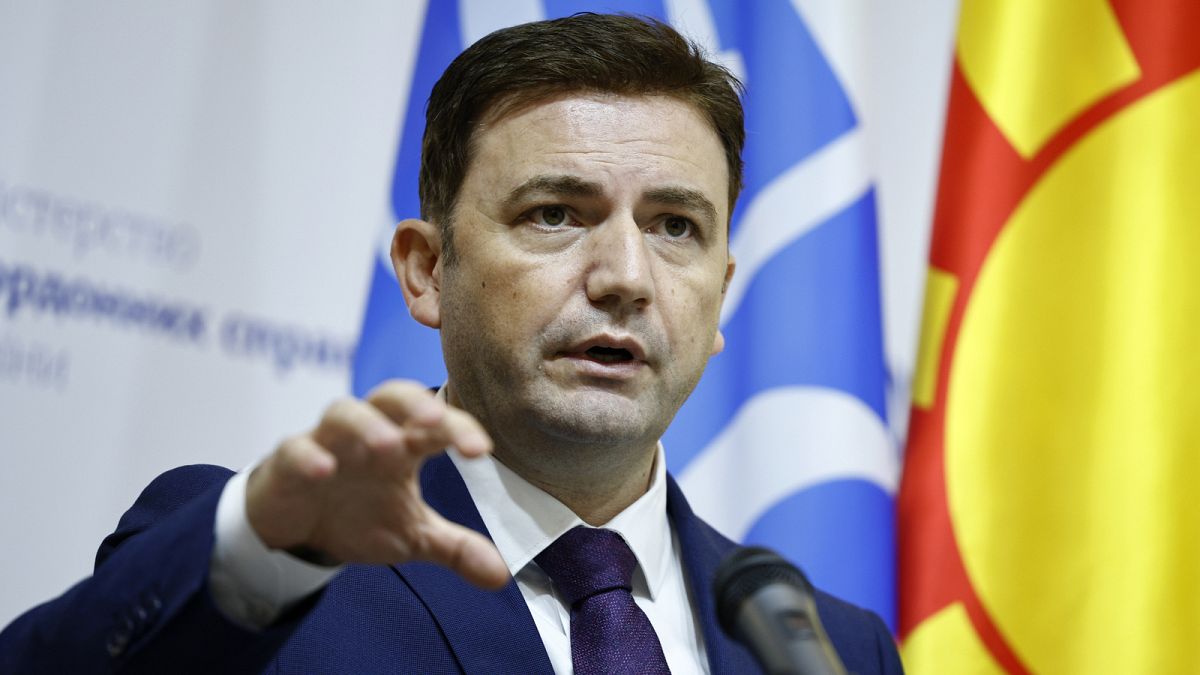
Frustration over the delay in North Macedonia’s EU accession is creating an opening for Russia to sow discord in the country through an “arsenal” of hybrid warfare, the country’s foreign minister has warned.
Bujar Osmani told Euronews on Tuesday evening that Russia is using targeted disinformation campaigns – including online trolling and fake news – to “fracture the social fabric of society” in the country and the wider Western Balkans and stall their accession to the EU.
“Obviously Russia designed disinformation in order to keep North Macedonia from achieving its strategic goals, which is NATO and EU membership,” Osmani said.
“The frustration that is built up along the way (to EU membership) is being hijacked by malign forces trying to channel this energy of frustration into their windmill,” he added.
North Macedonia became an official candidate to join the European Union almost two decades ago along with Croatia and Slovenia, now fully integrated EU members.
Its accession path has been stalled due to disputes with Greece over the country’s name, and with Bulgaria over the the rights of minorities as enshrined in the constitution.
A further four countries in the region – Albania, Bosnia and Herzegovina, Montenegro, and Serbia – are also official EU candidates. Formal accession negotiations have opened with all nations except for Bosnia and Herzegovina. Kosovo, which is not recognised as an independent state by all EU member states, is a ‘potential candidate’ for accession.
But their bids have been plagued with delays and difficulties. Osmani said that the region is now at a “geopolitical crossroads” where the political arena is becoming increasingly polarised between pro-Europeans and anti-Europeans.
The separatist movement in Bosnia’s Serb-majority Republika Srpska and the delays in normalising relations between Serbia and Kosovo are all examples of tensions that are being exacerbated by Russian-backed actors, Osmani said.
“I believe that behind all those efforts to keep the region stalling, to keep the region in perpetual confrontation and conflicts, is the Russian Federation through its arsenal of means but also proxy state and non-state actors in the region,” he said.
“The only response is to unequivocally continue with our agenda for Euro-Atlantic integration.”
Osmani backs Brussels’ new approach of ‘phased’ integration, including the €6-billion growth plan for 2024-2027 designed to open the bloc’s common market to the Western Balkan candidates and tipped to boost their economies by as much as 10%.
“We have realised that the default concept of EU accession is all in or nothing. The road is long, the journey is difficult, and people and the candidates do not see any benefits from the road itself,” Osmani explained.
“What we want to see is a gradual integration of the region into the single market before membership and integration into the formal formats of the European Union before integration itself,” he added.
This could mean giving Western Balkan nations observer status at EU ministerial meetings such as the Foreign Affairs Council, an idea that his EU counterparts are supportive of, Osmani said.
“One of the most significant threats of our time”
Osmani spoke to Euronews following the launch of the European External Action Service’s (EEAS) second annual disinformation report, which named Russia as the primary culprit of spreading harmful misinformation on digital platforms, and Ukraine the main target.
The EU’s foreign affairs chief Josep Borrell described disinformation as “one of the most significant threats of our time,” and a “cancer that puts the health of democracy at risk.”
The report, which is based on an investigation of 750 cases of so-called Foreign Information Manipulation and Interference (FIMI), says other states such as China also use interference to undermine democratic institutions and stoke polarisation abroad, as a means to “achieve their own political and economic goals.”
The most targeted individuals in the cases investigated were Ukrainian President Volodymyr Zelenskyy, French President Emmanuel Macron, Josep Borrell himself as well as celebrities such as Nicolas Cage and Margot Robbie, whose voices and faces were deliberately manipulated to sow misinformation.
Telegram and X emerged as the preferred platforms for FIMI attacks, with attacks also orchestrated on Facebook, TikTok, Youtube and Reddit as well as Russian social networks VKontakte and Odnoklassniki.
While the report notes it is “prudent” to prepare for potential interference ahead of June’s European elections, it also warns against “inflating the threat.”
Speaking during the event, Osmani said the Western Balkans was the “soft underbelly” of the EU when it came to foreign interference and the “fire line” in the disinformation war between East and West.

World
A Satellite View of Israel’s New Front in Gaza

New satellite imagery taken after Israeli forces pushed into Rafah shows widespread damage to the southern Gaza city — including large areas of flattened structures — and clusters of Israeli armored vehicles.
Source: Satellite imagery from Planet Labs
Imagery captured on Tuesday morning by Planet Labs, a commercial satellite company, shows damaged buildings reaching more than two miles into the territory near Rafah’s border crossing with Egypt. Israel seized that crossing this week.
Photos and videos released by the Israeli military in the same area show tanks in the vicinity of the crossing at a similar time on Tuesday morning.
While it is not possible to know exactly what caused the damage shown in the satellite imagery, much of what can be seen is consistent with the aftermath of clearing operations and other Israeli ground operations elsewhere in the Gaza Strip.
Source: Satellite imagery from Planet Labs
Israel says Rafah is Hamas’s last stronghold, and a critical gateway for arms shipments smuggled into Gaza from Egypt. It says it is determined to make sure the militants who were behind the Oct. 7 attacks on Israel no longer pose a threat.
But Rafah has also become a refuge for more than a million Palestinians who have fled Israeli bombardment in other parts of Gaza, and there is broad concern that a full-scale invasion might prove catastrophic.
Beyond that, Rafah is also home to one of the two main entry points for the vast majority of aid that has managed to enter Gaza during the war. Since the latest Israeli military operation began, no fuel or aid has made it through, according to Scott Anderson, the deputy director of UNRWA, the main U.N. aid agency in Gaza.
Source: Israeli military announcements
On Monday, the Israeli military ordered about 110,000 people to evacuate parts of Rafah. Thousands left the city, the Palestine Red Crescent Society said, which reported “escalating Israeli airstrikes” in areas east of Rafah.
Local health authorities warned of a “significant increase” in the death toll because of intense Israeli bombardment across Gaza, particularly in Rafah. The bodies of 58 people killed in Israeli strikes had arrived at Rafah’s Abu Yousef al-Najjar Hospital since Sunday, Dr. Marwan al-Hams, the hospital’s director, said Tuesday.
World
US reputation declines globally, immigration concerns grow in Europe: study
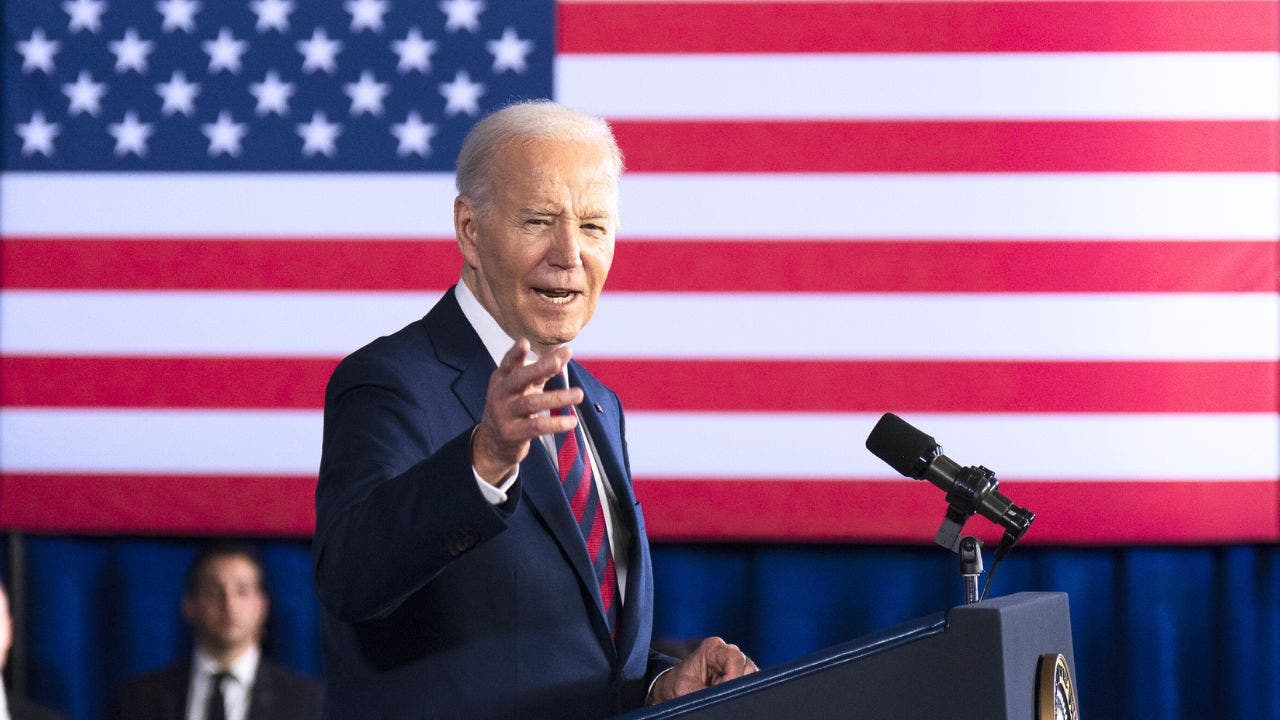
The reputation of the U.S. globally has taken a hit over the last year and the majority of citizens believe election integrity threatens the country’s democracy, while immigration is now one of the top concerns among Europeans, according to a global study published on Wednesday.
The drop in positive attitudes towards the U.S. is particularly stark in the Muslim-majority countries surveyed, including Indonesia, Malaysia, Turkey, Morocco, Egypt, and Algeria, as well as in European countries such as Switzerland, Ireland, Ukraine and Germany.
Still, the U.S. remains positively viewed globally, although Russia and China are now seen as positively as the U.S. in most Middle East and North African countries surveyed, according to the study.
BIDEN PLAN TO EXTEND OBAMACARE ELIGIBILITY TO ILLEGAL IMMIGRANTS GETS PUSHBACK IN CONGRESS: ‘MADNESS’
Biden speaks at the Pieper-Hillside Boys and Girls Club in Milwaukee, Wisconsin, on March 13, 2024. The reputation of the U.S. has suffered globally between the Spring of 2023 and the Spring of 2024. ( Sara Stathas/Bloomberg via Getty Images)
In Europe, countries have witnessed a sharp increase in the share of people who say that “reducing immigration” should be a top government priority as concerns about climate change fall, according to a global study published on Wednesday. About 5.1 million immigrants entered the EU from non-EU countries in 2022, an increase of around 117%, or 2.7 million, compared to 2021, European data shows.
Germany was in the lead with 44% when it came to people wanting their government to focus on reducing immigration, followed by Ireland and France.
The study, called the Democracy Perception Index (DPI) is one of the world’s largest annual studies on how people perceive the state of democracy in their respective countries and consisted of 63,000 interviews from people across 53 countries. It was conducted by the Denmark-based think tank Alliance of Democracies Foundation and the research group Latana. It did not provide a reason for the U.S. reputation decline.
The DPI found that faith in democracy has remained high across the globe over the past six years with 85% of those polled saying that it’s important to have democracy in their country.
However, governments don’t always live up to people’s expectations. While 58% of respondents were satisfied with the state of democracy in their country, the remainder were not.
In the U.S., 60% of respondents said that unfair elections and/or election fraud threatens the country’s democracy, while about 77% said that corruption is a threat to democracy.
LESS THAN 1 IN 4 AMERICANS HAVE FAVORABLE OPINION OF FEDERAL GOVERNMENT: POLL
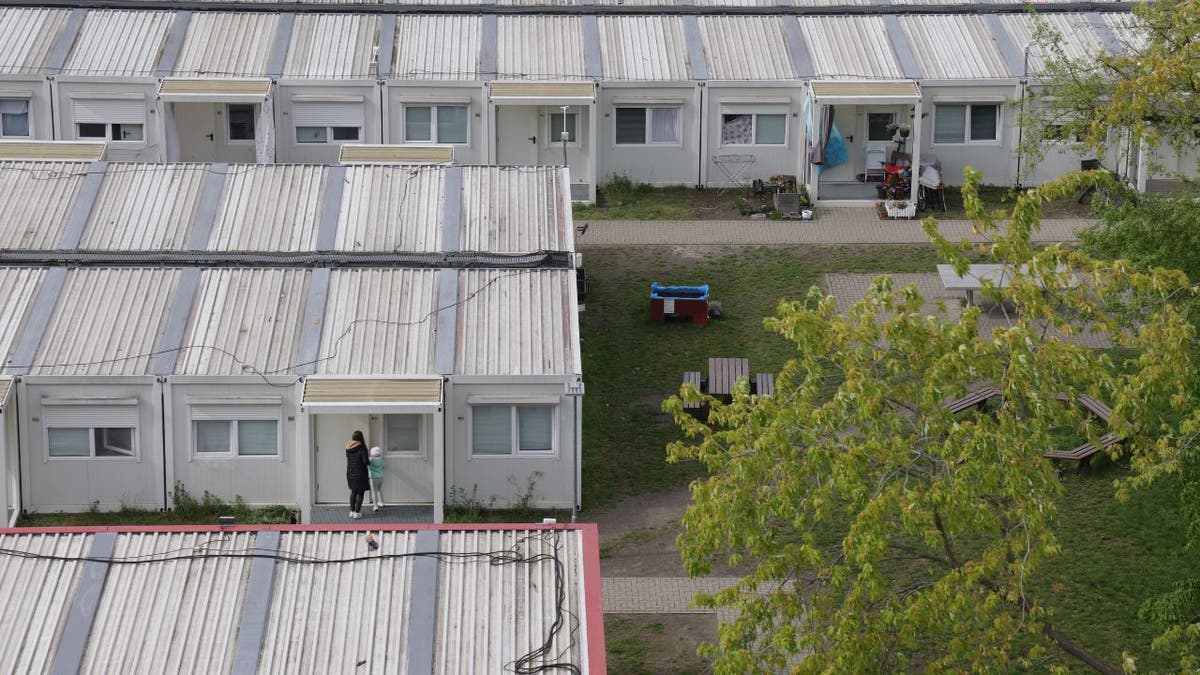
A container settlement that provides housing for refugees stands in Kreuzberg district on April 16, 2024 in Berlin, Germany. Immigration is now a major concern among Germans. ( Sean Gallup/Getty Images)
The study said dissatisfaction was not limited to non-democratic countries. It was also prevalent in the U.S., Europe and in other places with a long democratic tradition.
In Europe, about a third of Hungarians believe they live in a democracy.
About half of the people around the world, in both democratic and non-democratic countries, feel that their government is acting only in the interest of a small group of people. Over the past four years, this perception has remained highest in Latin America, lowest in Asia and has steadily increased in Europe since 2020 – particularly in Germany, the study shows.
Israel, Ukraine and Russia have all experienced a “rally around the flag” effect, with the public perception that the government is acting in the interest of the majority of the people increasing rapidly after the start of their respective conflicts. In Ukraine, however, this perception declined sharply after it peaked in 2022.
Anders Fogh Rasmussen, the chair of the Alliance of Democracies Foundation and former Danish Prime Minister, says that these figures are an eye-opener and the trend shows there is a risk of losing the Global South to the autocracies.

The DPI found that faith in democracy has remained high across the globe over the past six years with 85% of those polled saying that it’s important to have democracy in their country. (PAUL J. RICHARDS/AFP via Getty Images)
“Around the world people want to live under democracy but these figures are a wake-up call for all democratic governments,” Rasmussen said.
“Defending democracy means advancing freedom around the world, but it also means listening to voters’ concerns at home… We are witnessing an axis of autocracies forming from China to Russia to Iran. We must act now to make freedom more attractive than dictatorship and unite through an alliance of democracies to push back against the emboldened autocrats.
War and violent conflict is increasingly seen as the most important global challenge, followed by poverty and hunger, and climate change. The last year has seen a global rise in the share of people who say that migration and terrorism are among the world’s largest challenges, particularly among Europeans.
At the national level, most people want their governments to focus more on poverty reduction, corruption and economic growth.
However, there are strong regional differences in priorities: Europeans and Americans are much more likely to want their government to prioritize improving healthcare, fighting climate change and reducing immigration than countries in Asia and Latin America, where fighting corruption and promoting growth are seen as more important.
Globally, 33% of those surveyed believe climate change is one of the world’s three main challenges, but only 14% say fighting it should be among the top three priorities for their government.
Immigration is likely to play a major role in next month’s European elections where nationalist parties are expected to make significant gains.
The Associated Press contributed to this report.
World
Brussels agrees to send €3bn from frozen Russian assets to aid Ukraine

Diplomats agreed the controversial plans at a meeting on Wednesday – but some say they don’t go far enough.
EU diplomats agreed Wednesday to use income from frozen Russian state assets to aid Ukraine – paving the way for the war-torn country to get around €3 bn for arms purchases and reconstruction before the summer.
Since the full-scale invasion of 2022, €210 billion in assets of the Moscow central bank have sat frozen within the bloc – chiefly at the Euroclear depositary in Belgium.
The deal was agreed “in principle” at a regular meeting of national representatives, according to a tweet by Belgium, currently chairing talks in the European Council.
Brussels has long touted using the interest from those funds, estimated at around €3bn per year, for Ukraine’s reconstruction costs – and later extended its plans to cover Kyiv’s military expenditure.
The plan – which also has backing from the group of seven leading industrialised democracies – comes as Ukraine hopes to turn the tide in an increasingly desperate military campaign, bolstered by €89bn recently agreed by the US Congress.
But Ukrainian ministers have said Brussels needs to go further than merely scooping up interest payments – and fully confiscate Moscow’s assets to ensure the aggressor pays for the cost of war.
Officials from EU countries and the European Central Bank have expressed concerns that seizing assets outright might set an unhelpful precedent or harm the euro’s reputation as a safe currency.
Talks were also held up by concerns over how many of the assets would be retained by Euroclear as an administration fee, a figure that was originally as high as 13%, as well as Belgium’s right to tax the profits gained by the Brussels-based securities depository.
Belgian Prime Minister Alexander De Croo has already promised to send some €1.5bn directly to Ukraine, though that appears to be a result of applying existing corporate tax law to the unexpected windfall Euroclear gains by having frozen central bank assets on its books.
The final deal allows Euroclear to keep a provisional buffer worth 10% of the profits, in case of litigation over the funds. It can also keep 0.3% as an incentive, while 90% of the funds will be sent via the European Peace Facility to help Ukraine buy weapons.
Commission President Ursula von der Leyen previously suggested Ukraine could receive the first funds under the mechanism by July – but the calculation will be backdated to February, when Euroclear formally segregated the assets.
Ambassadors today also formally agreed on the reforms Ukraine will have to make to receive funds from a separate €50bn facility of EU grants and loans.
UPDATE (8 May, 17:00 CET): adds clarification regarding litigation buffer.
-

 Politics1 week ago
Politics1 week agoHouse Republicans brace for spring legislative sprint with one less GOP vote
-

 World1 week ago
World1 week agoAt least four dead in US after dozens of tornadoes rip through Oklahoma
-

 Politics1 week ago
Politics1 week agoStefanik hits special counsel Jack Smith with ethics complaint, accuses him of election meddling
-

 Politics7 days ago
Politics7 days agoThe White House has a new curator. Donna Hayashi Smith is the first Asian American to hold the post
-

 Politics1 week ago
Politics1 week agoAnti-Trump DA's no-show at debate leaves challenger facing off against empty podium
-

 News1 week ago
News1 week agoAs student protesters get arrested, they risk being banned from campus too
-

 News1 week ago
News1 week agoVideo: Police Arrest Columbia Protesters Occupying Hamilton Hall
-

 World1 week ago
World1 week agoNine on trial in Germany over alleged far-right coup plot
